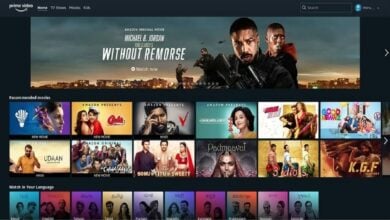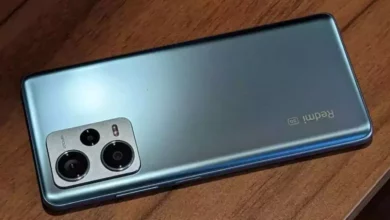Pakistani Telcos: How WEST has WON and EAST has LOST?

Telecom industry is the one of the biggest and exuberant industry of Pakistan that not only contributes a large portion to the national economy but touches the social life of the entire population in different ways. Mobile networks in Pakistan have a very strange history in terms of their formation and establishment. The use of cellular services has increased dramatically in the last few years and Pakistani network operators have changed hands resulting in unique scenario for the industry more specifically local players have been push out from the scene. Beside Telenor each operator has gone through many acquisitions made by different international companies. While the presence of so many multi nationals in the country, telecom industry is something that one can boost about as it brings in a lot of value but the downside to this is that through the transitions where foreign entities benefited from these changes the Government had very little or no say at all. More importantly these merger and acquisition deals either pushed local investors from the industry or made their shareholding minimal. As of today, besides Government owned equity Ufone, there is no major local player in the mobile service business. The last we saw of them was in the once booming Payphone and WLL industries that were mainly run by local investors, the likes of Arfeens, Saifullahs, Salman Taseer, Dancom etc.
The major reasons for absence of local players and their growth in the Telecom sector of Pakistan are lack of any special fiscal incentive, protective legislation & regulations for local entities, absence of large local corporate conglomerates and lastly the globalization of the telco industry itself.
Merger and Acquisition deals either weakened or have completely pushed out local investors from the Pakistan telecom industry
Keeping in view the emergence of global telco companies and their impact on local investments and effect on the economy, we have tried to draw comparison of how mergers and acquisitions take place in other regions/countries, what roles governments play in the process and how it is different from Pakistan.
Pakistani Telcos: How WEST has WON and EAST has LOST?
The objective is to highlight the discrepancies in the system and how our government can play effective role in the process to reap maximum benefits for all stakeholders specially to overcome the key elements that results in the failure of local investors in the industry.
International Case Studies-How they do it? In most countries it starts with the laws and regulations that are or seem very open and provide level playing field for all while other countries have very stringent laws & regulations for ensuring a larger portion and dominant position for local components.
Most of the countries where industries have matured and local companies are large and efficient, there are separate laws and regulations for licensing, mergers and acquisitions for telecom industry in which other departments beside telecom regulators are also involved. They have very extensive procedures and separate merger and acquisition laws that companies have to go through before the finalization of each transaction and while they do not specifically mention protection to local companies, the rules of the game generally favor local companies.
Lack of any special fiscal incentive, protective legislation for local entities, absence of local corporate conglomerates and the globalization of the telco industry are major reasons for absence of local players
The case in point are the markets in the US, EU and most of the industrialized nations (Except China, Japan, Korea and Russia). They have operators like Verizon, AT&T, Telenor, Vimplecom, Vodafone, Telefonica etc., that have very healthy and sound historical records, huge financial muscle, expert human resources and to top it all, the backing of their respective government that is capable of arm twisting and specially financial institutions making it very hard for a small company to fight on their turf.Although, they beat the drum for ensuring level playing field but essentially it is not the case as strong companies become winners in an environment where the stage is set for the “best man wins”, similar tactics are used when entering other countries as well.
Globally countries beat the drum of providing a level playing field for all but in reality that may not be the case as rules of the game generally favor local players
At the other extreme are countries that have very specific clauses for favoring local investors and nationalities that require compliance to either general laws even if they do not depend upon the structure of the economy and politics. The examples include GCC countries, China, Russia, Korea, Japan, India and a lot of African counties. Most of these countries (not all) are countries that have politically and economically closed structure as a government or as a society. This ensures that their local corporate entities prosper. Hence, they require additional regulations when it comes to companies wanting to take over telecom sector in anyway.
In the Gulf Co-operation Council (GCC) countries such as in the UAE, despite recent revision in Commercial Companies Law (CCL) the company foreign ownership is still restricted. The CCL requires a UAE company to be at least 51% owned by UAE nationals or 100% owned by GCC nationals which may be the reason why two mobile operators in UAE i.e. Etisalat and Du are majority government-owned entities.
The reason for keeping the telecom sector closed or restricted to local entities also stem from the fact that in past and even today, telecommunication is very high on any country’s national security agenda. Only a couple of years back when the US House Intelligence Committee said as reported by the New York Times, “that after a yearlong investigation it has come to the conclusion that the Chinese businesses, Huawei Technologies and ZTE Inc., were a security threat because of their attempts to extract sensitive information from American companies and their loyalties to Chinese Government”. Similarly, Chinese Government has either banned or restricted US based social media companies and services such as Google, Facebook and others citing same reason of threat to national security even though these are vendors and not operators but for mobile companies the rules are even tougher.
Strong government support at the local level is one of the major reasons why foreign companies not only have strong positions in their local markets but are also venturing outside their territories. FCC regulations in USA, although seem straightforward and open to all but in reality are quite difficult to fulfill and eventually it becomes impossible for new international player to fulfill those requirements, unless it is a major global service provider.
Keeping the telecom sector closed or restricted to local entities historically and even now is due to threats international companies can pose on national security
The encouraging environment for local players can be judged by the fact that three out of five mobile operators in USA are run by local investors. Similarly in the GCC countries, governments have always given priority to local investors. Regulations in the GCC countries are so strict that no international company can solely own a company there, it has to involve a local investor in order to enter market.
The case of Pakistan Telecom Industry: How We Lost?
Pakistan telecom Industry saw an enormous history of changes in ownership of all operators in one way or another. But in each situation, the government played minimalistic role in mergers and acquisitions in telecom sector of Pakistan.
To get a better understanding of each mobile operator’s merger and acquisition history, we have tried to gather some account of each telco’s transfer of ownership.
. Instaphone
Instaphone was the first ever cellular mobile service of the country that was launched in 1991. The company was jointly owned by Arfeen Group and Millicom International. Later on, in 2006 Millicom International handed over its shares to its local partner Arfeen Group. The deal was based on the agreement that Arfeen Group will divest its share in Paktel in favor of Millicom International and in return Millicom will do the same and dissociate its shares in Instaphone in favor of Arfeen Group. In 2008, PTA terminated Instaphone’s license due to non-payment of outstanding dues although they fought a very lengthy legal battle to trying to convince the regulator at that time to make any meaningful shift in technology or get additional investment for growth they need to get full spectrum access.
Policy makers and Regulators should not only apply legal & regulatory clauses to local industry for short term compliance but also apply their creative minds to avoid negative long term repercussions
They were demanding that the regulator complete 10 Mhz instead of 7.36 Mhz allocated to enable them to launch 3G services when every other operator was doing 2G. Bankruptcy and eventual exit of Instaphone is perhaps one of the biggest causality of the local telecom player of our time and a missed opportunity.
Had the policy and regulatory regime leadership of that time at some point applied some mind, it could not only have saved the local player from demise but could have made some meaningful contribution to the cause of furthering local players in the industry.
This carries a very strong lesson as well that the policy makers and regulators should not only apply legal & regulatory clauses to industry for short term compliance but should apply their creative minds to avoid such negative long term repercussions for the industry.
. Paktel
Cable & Wireless also known as C&W (80% share) was the international company that launched Paktel’s AMPS commercial service along with a local real estate company Hasan Associates (20% shares) in 1990. The local shareholders were made to sell its stake to C&W in the late 90’s. In 2000 Instaphone majority owner, Millicom acquired Paktel for an unknown amount from C&W. later in 2006, Millicom sold Paktel to China Mobile for 284 million dollars which included the repayment of intercompany debt with total enterprise value of 460 million dollars. In May, 2007 Paktel was rebranded to Zong.
. Mobilink
Mobilink is the first GSM operator of the country that started its operations in 1994 after a joint venture between Saif Group and Motorola Inc. later on in April 2000, Orascom Telecom (OT) bought 38.6% shares of Mobilink. It then became a major stakeholder in 2001 by increasing its shares to 68.69% after buying Motorola’s share.
To some extent our own successive Governments have been instrumental in the demise of local investers with their non-supportive and un-futuristic polices
In 2007 Orascom acquired 100% shareholding of the company after a forced takeover from the minority shareholders reportedly compensating them with an undisclosed cash for their shares. The company was later sold as part of the Orascom telecom properties to Vimplecom. The 51% stake sold initially by Orascom to Vimplecom was valued at around USD 6.8 billion that did not include Egypt OT properties. At one time Telenor bought into Vimplecom for an undisclosed amount essentially making them to own two mobile properties in Pakistan i.e. Telenor Pakistan and Mobilink, but after a year or so reversed this decision. Billions of dollars were exchanged in these transactions that resulted in the real gains rather the business case based on organic growth of the individual company that now seems to be the order of the day for making profits for companies. This has reduced the real business case and also the role of local entities since the real transactions happens at the global level.
. Ufone
Pak Telecom Mobile Limited (PTML) was incorporated in Pakistan in June 1998 by PTCL, as a public limited company to provide cellular mobile telephony services in Pakistan. It started its operations in January 2001 under the brand name “Ufone”. PTCL’s was privatized and handed over by Government of Pakistan to Etisalat. The deal basically was 26% with management rights for the group that included Ufone as part of PTCL in 2006.
. Telenor
Telenor Pakistan was founded in 2004 by Norwegian Telenor Group which is among the largest operators in the world. Telenor Pakistan is the second largest mobile operator of Pakistan with 33.6 million subscribers and the only operator that hasn’t changed its ownership through any merger or acquisition deal so far.
. Warid
Warid Telecom was initially established by Abu Dhabi Group but in 2007 Singapore Telecommunications Limited (SingTel) acquired 30% equity stakes for estimated $758 million.
The Local investors that have survived and could emerge strongly are mobile phone distribution and VAS companies but they will need special incentives and preferential treatment in future licensing
In 2013, SingTel sold back its shares for 150 million dollars and a right to receive 7.5 per cent of the net proceeds from any future sale, public offering or merger of Warid. Recently, in 2015 VimpelCom struck a deal with Abu Dhabi Group to acquire Warid for an equity swap in Mobilink but tied to a portion of a sell off. While, this transaction is welcomed by everyone but whatever is the value of transaction probably none of that amount is coming to Pakistan. Throughout the merger and acquisition history of telecom sector, successive Pakistani governments haven’t taken up any substantial step to facilitate or enhance local participation in the telecom sector of the country rather they has been instrumental to some extent in the demise of local industry participation with non-supportive and un-futuristic polices. Initially, there were Arfeen group, Hassan Associates and Saif group who started Instaphone, Paktel and Mobilink respectively but later they either were forced out because of Government inactiveness or sold their shares to foreign companies realizing that they will lose out in the big game. Presently, Ufone is the only operator that has some local component but is owned primarily by Government and controlled by Etisalat.
Government‘s focus has been on bringing international companies to the market instead of encouraging local investors
The WLL industry was mainly run by the local players but instead of facilitating the industry government overburdened it with various regulatory restriction on mobility due to the pressure from the mobile industry that it has almost been wiped out except PTCL, which is likely to be phased out in the near future since the regulatory and market conditions don’t look very conducive for it either. Also in 1991 card phone companies started operations in Pakistan, these companies were mainly owned by local investors. However, when the MNOs expanded their networks and were allowed to establish their own PCOs, card payphone industry was also wiped out over night.
The local industry that has survived and could sustain probably grow as well if supported is the mobile phone distribution i.e. Q-Mobile, United Mobile, Haier, G-Five, Advance Mobile, Airlink Communications etc. (although some of them are struggling now).Their role in the industry can be increased by giving them some preferential treatment in the new licensing framework such as in MVNO, M-Commerce, Mobile Content, Public Wifi etc. This would allow them to not only sustain in the increasingly competitive telecom industry but also expand into other areas and markets.
Some local VAS companies are also making their mark such as IBEX, Planet Beyond, RockVille etc., and if supported properly, they can increase the share of local industry as the Data Revenues are rising after 3G/4G and they play a very important role in maximizing revenues for the mainstream mobile companies. Some of these companies are now aiming for international markets as well and with the given IT human resource we have in the country, it can result in high dividends. After-all, the nature of telco business is also evolving from conventional engineering to IT.
Our successive Governments have always been of the view that entrance of foreign companies and FDI in the market is the only method to boost national economy. Its focus has been on bringing international companies to the market instead of encouraging local investors. Considering foreign companies as a financial savior may be the reason why government didn’t interfere in merger and acquisition process in telco industry as well. But as we have seen international players make investments in Pakistan market, do business for some years and move out after reaping heavy profits from sale of their shares leaving government no control or role to play besides being a silent observer.
Creating a fair and business friendly environment is the key but at the same time it should and can attract local investors to join in. The Ministry and the Regulator have an important role to play in each merger and acquisition and should ensure that said change is beneficial for the country and its people. Even more important responsibility of government is to create better opportunities for its own people. There are many resourceful and affluent Pakistani businessmen settled in Pakistan and in foreign countries who are eager to invest in Pakistan but are hesitant due to lack of any special fiscal incentive and protective legislation & regulations for local investors. The government needs to come up with a comprehensive framework for telecom sector of Pakistan and at the same time create equal opportunities for all investors while giving special encouragement to local investors. The challenge may look very tough but not one that cannot be achieved; all is not lost to see Pakistani Telco companies making their mark at the international level.
PTA Taxes Portal
Find PTA Taxes on All Phones on a Single Page using the PhoneWorld PTA Taxes Portal
Explore NowFollow us on Google News!





